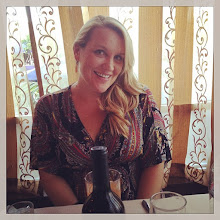Today, I am turning the blog over to discuss a topic that is very important, and ultra-sensitive, Using Frozen Donor Eggs.
Emotion and Logic Don't Tango
Whenever a situation involves strong emotions, it can be very difficult to see the logical side of the coin. Inevitably, when it comes to using a frozen egg donor, you're hopping on board an emotional roller coaster that is loaded with challenges.
My husband and I faced a tremendous struggle in adding another child to our family following our son’s adoption. We know all too well the emotional difficulties couples face when using frozen eggs, but the disappointment of nine unsuccessful cycles of IVF, frozen embryo transfer cycles, and a failed adoption, led us to explore a new alternative by using frozen donor eggs.
In the end, we were given the ultimate blessing. The arduous journey we’d gone through ended with me delivering our beautiful twins - a girl and a boy. The journey, however, was not without its challenges. Before one can arrive at the ultimate goal – giving birth to a healthy child – you must first understand the process of frozen donor eggs, and all the emotions you may experience too, in order to make it work.
No doubt, it's a heck of a lot to handle.
An element of fear may creep in when you think about not having a, or another, biological child, and you may worry that your child might not seem like your own. These feelings are natural and very common. I went through this, but made the choice to acknowledge my fears and then move forward. In the end, the sight of our twins conquered any negative emotions I had towards the process and decision to use donor eggs.
Here are a few real concerns on the psychological aspects of using donor eggs from the Center for Human Reproduction.
*Not your own DNA - In a perfect world, all women would be able to have their own biological children if they chose. Of course, that’s not the case. In order to have a family, using an egg donor may be the best option for many couples. With this reality comes the knowledge that your baby will not be genetically related to you. They won't inherit your traits, and they will probably not resemble you. You can look through the catalog of potential donors’ pictures and profiles with the goal of finding someone similar to yourself, but there is no one out there who is just like you.
This is a tough pill to swallow when you're already dealing with the disappointment of not being able to conceive a baby naturally. Understand your feelings and emotions are very normal, and it's important to talk to someone you trust about them. Get them out in the open so you can grieve and deal with them, ultimately setting yourself up to accept and move forward positively.
*What about the intrinsic bonding process? - You may be wondering if you will be able to bond with a third party's genetics. It's natural to wonder if you will have that special relationship with your baby. But the bonding process is complex and does not come down to a simple matter of genetics. It's important to remember that your body will be nourishing and providing for this baby. You are the one the baby knows and trusts. You are the platform for that precious emotional connection.
Just because they don’t share your genetic code doesn't mean you won’t be attached to your child. As they say, it is mind over matter - when you mentally accept the fact that this is your child, no matter what, and that they need you to grow and to flourish, the fear of not having an intimate connection will disappear. It just takes a little time and patience.
*Feelings of loss because it is not your "own" child - Not being able to conceive naturally is a tough reality to deal with. You may battle through an emotional roller coaster of grief and guilt because, technically, the child is not your own. But this is truly only a technicality. Your child will be your child. Nurturing, loving, providing for and being there for your child is far more important than making it.
It's natural to grieve… but it’s also important to accept your reality and embrace what you do have!
*Breaking the news to family, friends, and healthcare providers: the social considerations - It is your choice whether you will disclose the fact that your child was conceived through donor egg. Aside from your child’s doctor, it is truly no one’s business but your own.
If you do choose to share your situation, you must brace yourself for the fact that some people may need time to understand - and that's a fair request. Try not to take it personally, and let them clearly know how excited you are about your pregnancy. If they continue to act negatively, you may need to distance yourself from that person so you can focus on your new bundle of joy that's just around the corner.
The bottom line is, it's very important to face your emotions and accept them. You may feel any number of things, like isolation, guilt, confusion, blame, and even failure. These are all normal emotions and when you allow yourself the time to come to terms with the situation, you will see that there is a light at the end of the tunnel, and it's truly magnificent.




